|
Books Should Be Free Loyal Books Free Public Domain Audiobooks & eBook Downloads |
|
|
Books Should Be Free Loyal Books Free Public Domain Audiobooks & eBook Downloads |
|
Travel Books |
|---|
|
Book type:
Sort by:
View by:
|
By: Robert Michael Ballantyne (1825-1894) | |
|---|---|
 The Lighthouse
The Lighthouse
| |
By: Frances M. A. Roe | |
|---|---|
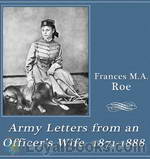 Army Letters from an Officer's Wife, 1871-1888
Army Letters from an Officer's Wife, 1871-1888
"There appeared from the bushes in front of me, and right in the path, two immense gray wolves . . . Rollo saw them and stopped instantly, giving deep sighs, preparing to snort, I knew . . . To give myself courage, I talked to the horse, slowly turning him around . . . when out of the bushes in front of us, there came a third wolf! The situation was not pleasant and without stopping to think, I said ‘Rollo, we must run him down - now do your best’ and taking a firm hold of the bridle, and bracing myself in the saddle, I struck the horse with my whip and gave an awful scream... | |
By: Frederik Pohl (1919-) | |
|---|---|
 The Day of the Boomer Dukes
The Day of the Boomer Dukes
| |
By: Henry W. Lucy (1845-1924) | |
|---|---|
 Faces and Places
Faces and Places
Faces and Places is a collection of articles on nineteenth century travel, events and personalities by the British journalist Henry Lucy, who wrote for the Daily News, a London newspaper. His open letter To Those About to Become Journalists rings as true today as when it was written.The first article, “Fred” Burnaby, includes a lively account of a balloon trip, while Night and Day on the Cars in Canada and Easter on Les Avants relate Lucy’s experiences of rail travel at that time. Other travel tales (A Night on a Mountain, Mosquitoes and Monaco, and Oysters and Arcachon) provide an insight into the Victorian Englishman’s attitude to Europe... | |
 East by West: a Journey in the Recess
East by West: a Journey in the Recess
East by West: a Journey in the Recess is an account of British journalist Henry Lucy's travels across America and on to the Far East during the parliamentary recess in 1883. Lucy was one of the most influential journalists of his day and, as "Toby M.P.", a noted humorist in Punch magazine. His acute powers of observation and light touch make this a most engaging book. It is a fascinating insight into the Englishman's travels abroad within two decades of the American Civil War and the end of Japanese isolationism... | |
By: Ellen Clacy | |
|---|---|
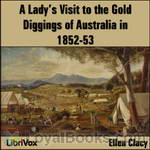 A Lady's Visit to the Gold Diggings of Australia in 1852-53,
A Lady's Visit to the Gold Diggings of Australia in 1852-53,
“If you have visions of a middle-aged parasol-bearing lady smiling sweetly from her carriage as she tours Bendigo think again. In 1852, 20 year old clergyman’s daughter Ellen and her brother boarded ship for Melbourne then set off to walk to Bendigo. Dressed in her blue serge skirt which doubled as nightwear, she camped under a tent made of blankets, had mutton, damper and tea most meals and on arrival lent her hand to gold washing. And seemed to enjoy it !And amongst other things she tells of colonial life , transportation, emigration and other gold-fields.But you will need to listen to hear more about bush-rangers and orphans as well as what she did with her parasol.” | |
By: Clifford Simak (1904-1988) | |
|---|---|
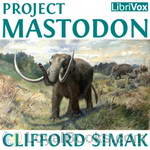 Project Mastodon
Project Mastodon
Clifford Simak deals with the implications of time travel in his own unique way in this story. What if a group of guys did it on their own, without any help from government or industry? On a shoestring,so to speak? Would anyone believe them? What would you do if you could go back 150,000 years to a time when mastodons and saber toothed tigers roamed North America? And what happens when they run out of money? All these questions are explored in the usual humorous, wry Simak way in this story. | |
By: Fritz Leiber (1910-1992) | |
|---|---|
 The Big Time
The Big Time
A classic locked room mystery, in a not-so-classic setting. (Intro by Karen Savage) | |
By: Charles Dudley Warner (1829-1900) | |
|---|---|
 Our Italy
Our Italy
| |
 On Horseback
On Horseback
| |
 Saunterings
Saunterings
| |
 Their Pilgrimage
Their Pilgrimage
| |
 Baddeck, and That Sort of Thing
Baddeck, and That Sort of Thing
| |
 How Spring Came in New England
How Spring Came in New England
| |
By: W. Somerset Maugham (1874-1965) | |
|---|---|
 The Land of The Blessed Virgin; Sketches and Impressions in Andalusia
The Land of The Blessed Virgin; Sketches and Impressions in Andalusia
| |
By: Dame Shirley (d.1906) | |
|---|---|
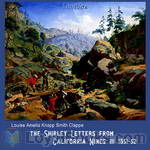 The Shirley Letters from California Mines in 1851-52
The Shirley Letters from California Mines in 1851-52
Louise Amelia Knapp Smith Clappe moved to California from Massachusetts during the Gold Rush of the mid-1800’s. During her travels, Louise was offered the opportunity to write for The Herald about her travel adventures. It was at this point that Louise chose the name “Shirley” as her pen name. Dame Shirley wrote a series of 23 letters to her sister Mary Jane (also known as Molly) in Massachusetts in 1851 and 1852. The “Shirley Letters”, as the collected whole later became known, gave true accounts of life in two gold mining camps on the Feather River in the 1850s... | |
By: Enos A. Mills (1870-1922) | |
|---|---|
 Wild Life on the Rockies
Wild Life on the Rockies
“This book contains the record of a few of the many happy days and novel experiences which I have had in the wilds. For more than twenty years it has been my good fortune to live most of the time with nature, on the mountains of the West. I have made scores of long exploring rambles over the mountains in every season of the year, a nature-lover charmed with the birds and the trees. On my later excursions I have gone alone and without firearms. During three succeeding winters, in which I was a Government Experiment Officer and called the “State Snow Observer,” I scaled many of the higher peaks of the Rockies and made many studies on the upper slopes of these mountains.” | |
By: W. W. Jacobs (1863-1943) | |
|---|---|
 Dialstone Lane
Dialstone Lane
| |
By: George Hamilton | |
|---|---|
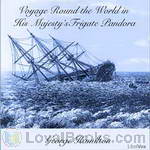 Voyage Round the World in His Majesty's Frigate Pandora
Voyage Round the World in His Majesty's Frigate Pandora
George Hamilton was the surgeon assigned to the frigate Pandora. The British Admiralty ordered the ship to the Pacific to arrest the Bounty mutineers and bring them back to England for trial. The commander, Captain Edward Edwards, also was ordered to chart the passage between Australia and New Guinea. While Edwards managed to arrest the mutineers still on Tahiti, he sank the Pandora on a reef near Australia. Hamilton tells this story and also the story of the crew’s fate after the Pandora sank. | |
By: Susan Warner (1819-1885) | |
|---|---|
 Nobody
Nobody
There are many romantic tales about a handsome and rich man falling in love with a beautiful lower class woman over the objections of his family. Remember Elizabeth Bennett and Fitzwilliam Darcy? however, it takes more than a good woman to secure a man's happiness. He has to have mental strength. It is not certain that our hero, Tom, has that. Lois is a great woman. However, according to his sister, she is a "nobody." Does money and position control everything? Certainly not. Good people deserve to be happy... | |
By: George Gissing (1857-1903) | |
|---|---|
 By the Ionian Sea Notes of a Ramble in Southern Italy
By the Ionian Sea Notes of a Ramble in Southern Italy
| |
By: Stewart Edward White (1873-1946) | |
|---|---|
 The Mountains
The Mountains
| |
 The Land of Footprints
The Land of Footprints
| |
By: Carey Rockwell | |
|---|---|
 Danger in Deep Space
Danger in Deep Space
| |
By: Meriwether Lewis (1774-1809) | |
|---|---|
 The Journal of Lewis and Clarke (1840)
The Journal of Lewis and Clarke (1840)
"The expedition of Messrs. Lewis and Clarke, for exploring the river Missouri, and the best communication from that to the Pacific Ocean, has had all the success which could be expected. They have traced the Missouri nearly to its source; descended the Columbia to the Pacific Ocean, ascertained with accuracy the Geography, of that interesting communication across the continent; learned the character of the country, its commerce and inhabitants; and it is but justice to say that Messrs. Lewis and Clarke, and their brave companions, have, by this arduous service, deserved well of their country... | |
 History of the Expedition under the Command of Captains Lewis and Clark, Vol. I. To the Sources of the Missouri, Thence Across the Rocky Mountains and Down the River Columbia to the Pacific Ocean. Performed During the Years 1804-5-6.
History of the Expedition under the Command of Captains Lewis and Clark, Vol. I. To the Sources of the Missouri, Thence Across the Rocky Mountains and Down the River Columbia to the Pacific Ocean. Performed During the Years 1804-5-6.
| |
By: John Henry Patterson (1867-1947) | |
|---|---|
 The Man-Eaters of Tsavo and Other East African Adventures
The Man-Eaters of Tsavo and Other East African Adventures
In 1898, during the construction of river-crossing bridge for the Uganda Railway at the Tsavo River, as many as 135 railway workers were attacked at night, dragged into the wilderness, and devoured by two male lions. The Man-Eaters of Tsavo is the autobiographical account of Royal Engineer Lt. Col. J.H. Patterson's African adventures. Among them, his hunt for the two man-eaters.This book was the basis for the 1996 film The Ghost and the Darkness. | |
By: Ezra Meeker (1830-1928) | |
|---|---|
 Ox-Team Days on the Oregon Trail
Ox-Team Days on the Oregon Trail
Ezra Meeker…was an early pioneer who traveled the Oregon Trail by ox cart as a young man. Beginning in his 70s, he worked tirelessly to memorialize the trail, repeatedly retracing the trip of his youth. This book is a memoir of those days. | |
By: Frederick Starr (1858-1933) | |
|---|---|
 In Indian Mexico (1908)
In Indian Mexico (1908)
| |
By: Rebecca Harding Davis (1831-1910) | |
|---|---|
 Frances Waldeaux
Frances Waldeaux
| |
By: Samuel Smiles (1812-1904) | |
|---|---|
 The Huguenots in France
The Huguenots in France
| |
 A Boy's Voyage Round the World
A Boy's Voyage Round the World
| |